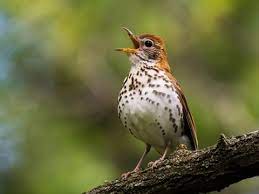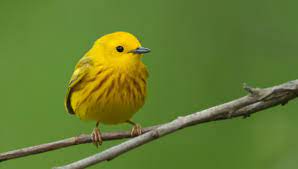
It feels like winter still, but the Old Farmer’s Almanac says differently. It’s the first day of spring. The long-awaited equinox. Poets, like farmers, have forever taken note. It moved Robert “Beginning to Melt” Frost to prayer, for instance:
“A Prayer in Spring”
Oh, give us pleasure in the flowers today;
And give us not to think so far away
As the uncertain harvest; keep us here
All simply in the springing of the year.
Oh, give us pleasure in the orchard white,
Like nothing else by day, like ghosts by night;
And make us happy in the happy bees,
The swarm dilating round the perfect trees.
And make us happy in the darting bird
That suddenly above the bees is heard,
The meteor that thrusts in with needle bill,
And off a blossom in mid air stands still.
For this is love and nothing else is love,
To which it is reserved for God above
To sanctify to what far ends he will,
But which it only needs that we fulfill.
Yes, yes. There’s something about spring that pulls the “Oh’s” and the “O’s” from poets’ throats. I give you the experienced (and innocent) William Blake:
“To Spring”
O thou with dewy locks, who lookest down
Thro’ the clear windows of the morning, turn
Thine angel eyes upon our western isle,
Which in full choir hails thy approach, O Spring!
The hills tell each other, and the listening
Valleys hear; all our longing eyes are turned
Up to thy bright pavilions: issue forth,
And let thy holy feet visit our clime.
Come o’er the eastern hills, and let our winds
Kiss thy perfumed garments; let us taste
Thy morn and evening breath; scatter thy pearls
Upon our love-sick land that mourns for thee.
O deck her forth with thy fair fingers; pour
Thy soft kisses on her bosom; and put
Thy golden crown upon her languished head,
Whose modest tresses were bound up for thee.
There’s something about British poets and cuckoos, too. Here they only come in clocks: Eastern Standard Cuckoos and Daylight Savings Cuckoos. Let’s listen to some Bardilicious Shakespeare:
“Spring”
When daisies pied, and violets blue,
And lady-smocks all silver-white,
And cuckoo-buds of yellow hue
Do paint the meadows with delight,
The cuckoo then, on every tree,
Mocks married men, for thus sings he:
‘Cuckoo!
Cuckoo, cuckoo!’ O word of fear,
Unpleasing to a married ear.
When shepherds pipe on oaten straws,
And merry larks are ploughmen’s clocks,
When turtles tread, and rooks, and daws,
And maidens bleach their summer smocks,
The cuckoo then, on every tree,
Mocks married men, for thus sings he:
‘Cuckoo!
Cuckoo, cuckoo!’ O word of fear,
Unpleasing to a married ear.
Closer to (my) home, we have Claude McKay mucking about New Hampshire in mud season, thinking on fast-approaching April and slower-approaching May:
“Spring in New Hampshire”
Too green the springing April grass,
Too blue the silver-speckled sky,
For me to linger here, alas,
While happy winds go laughing by,
Wasting the golden hours indoors,
Washing windows and scrubbing floors.
Too wonderful the April night,
Too faintly sweet the first May flowers,
The stars too gloriously bright,
For me to spend the evening hours,
When fields are fresh and streams are leaping,
Wearied, exhausted, dully sleeping.
Here Katherine Mansfield unfurls a few flags of tenderest green:
“Very Early Spring”
The fields are snowbound no longer;
There are little blue lakes and flags of tenderest green.
The snow has been caught up into the sky–
So many white clouds–and the blue of the sky is cold.
Now the sun walks in the forest,
He touches the bows and stems with his golden fingers;
They shiver, and wake from slumber.
Over the barren branches he shakes his yellow curls.
Yet is the forest full of the sound of tears….
A wind dances over the fields.
Shrill and clear the sound of her waking laughter,
Yet the little blue lakes tremble
And the flags of tenderest green bend and quiver.
Pete Crowther channels the old country of “Jolly Olde,” plowing the way for red-winged blackbird season:
“Srping–It Is Icumen In”
There is no breath of wind today
The fields still white with frost
So clear the air that I can see
For miles and miles to where
A village church is almost hid
By trees, and here and there
A tiny plume of smoke betrays
Some farmhouse tucked away.
All seems to be expectancy:
The very air vibrates
And sparkles with the promise that
Sweet spring is on the way.
I feel my spirit lift, take wing
To be alive this day.
(Crowther’s being a play on the Middle English song with its famous refrain: Sing cuccu nu. Sing cuccu / Sing cuccu. Sing cuccu nu!)
Finally, lest your eyes go bleary with all these distinct, look-alike paeans to spring, I leave you with Matsuo Basho. You can always count on Basho to approach things differently. And succinctly:
First day of spring–
I keep thinking about
the end of autumn.
Sigh…


